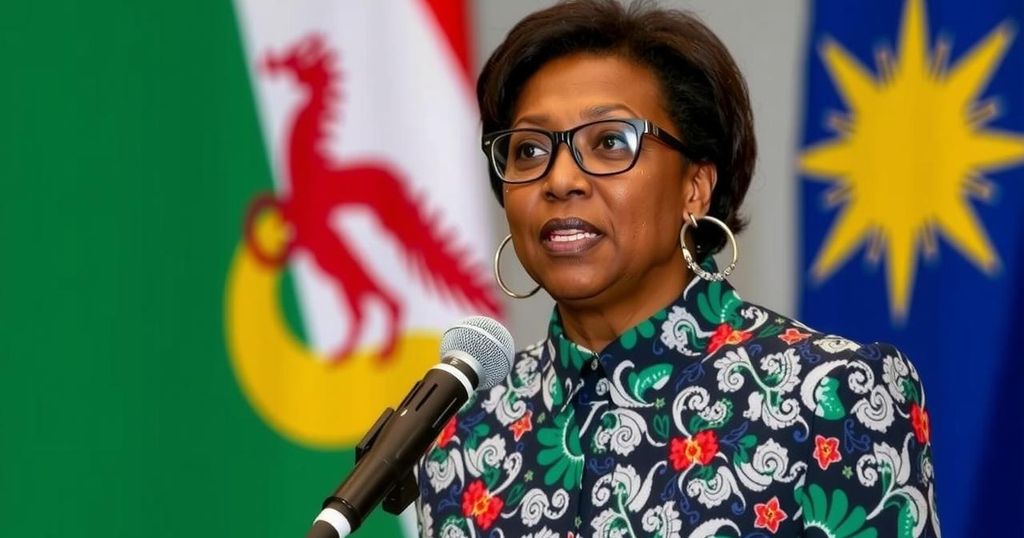Challenges Emerge in Namibia’s Presidential Election as VP Nandi-Ndaitwah Leads
Namibia’s Vice President Netumbo Nandi-Ndaitwah leads initial results in a presidential election marred by technical issues, including insufficient ballot papers, prompting an extended voting period. Opposition parties contest the legitimacy of the election, with plans to challenge the results legally, raising significant concerns about Uganda’s democratic processes and governance.
In the recent presidential election in Namibia, Vice President Netumbo Nandi-Ndaitwah of the ruling South West Africa People’s Organization (SWAPO) has taken the lead according to early results. However, the election has been significantly marred by technical difficulties, including a shortage of ballot papers, prompting an extended voting period of three days. Opposition parties have raised concerns about the legality of the extended voting timeframe, asserting that it undermines the integrity of the electoral process. As Namibians await final results, opposition groups signal intentions to challenge the election outcome in court.
Nandi-Ndaitwah, a prominent candidate and a former member of Namibia’s independence movement, has garnered approximately 56% of the votes counted thus far, although only 220,000 out of about 1.4 million total votes have been processed. Her main competitor, Panduleni Itula from the Independent Patriots for Change, trails with approximately 27%. The election was held in a country known for its historical political stability and smooth electoral processes since gaining independence from apartheid South Africa in 1990. However, SWAPO faces significant public discontent due to high unemployment rates and economic challenges, especially among the youth, alongside corruption scandals that have tarnished its image.
Furthermore, opposition leaders have voiced their intentions to file a legal challenge regarding the conduct of the election. They argue that it is essential to uphold democratic standards in the nation. McHenry Venaani, leader of the opposition Popular Democratic Movement, emphasized the significance of ensuring governance that serves all citizens. As political discontent rises in neighboring southern African nations, Namibia’s electoral proceedings are under scrutiny. The Electoral Commission of Namibia has declared that a rerun of the election will not occur despite opposition demands, thereby intensifying the current political tensions. As the situation unfolds, stakeholders are closely monitoring potential implications for Namibia’s democratic framework and future governance.
The recent presidential election in Namibia, held on November 27, 2024, saw Vice President Netumbo Nandi-Ndaitwah lead in initial results amidst notable electoral challenges. Voter queues and technical problems characterized the election, including a critical ballot paper shortage that resulted in an extended voting period. Historically praised for its democratic stability since 1990, Namibia now faces troubling questions regarding the integrity and legality of its electoral process, a concern echoed by opposition parties which have vowed to legally challenge the results. This mirrors a broader trend of political discontent in the southern African region, impacting traditional ruling parties and their longevity.
In summary, the recent Namibian presidential election, while initially promising with Vice President Netumbo Nandi-Ndaitwah in the lead, has been significantly overshadowed by logistical issues and opposition complaints regarding the electoral process. The upcoming legal challenges will play a crucial role in determining the legitimacy of the results and the overall future of Namibia’s democratic integrity. As developments unfold, the international community will be watching closely to see how Namibia addresses these critical issues.
Original Source: apnews.com




Post Comment